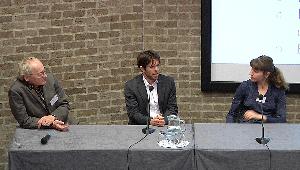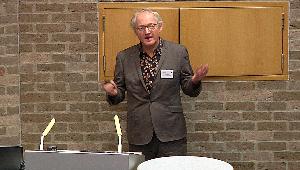Prof Heather Douglas - 29 April 2017 - Responsibility and Inequality in a Risky World
Update: 2017-05-23
Description
Responsibility and Inequality in a Risky World w/Prof Heather Douglas
DESCRIPTION
We live in a world full of emerging risk. We generate new capacities with the potential to reorder our world and we discover new risks from old practices. What responsibilities come with doing this work? How should we manage the attendant risks? I will describe the nature and boundaries of responsibility for the new in a risky world, and I will argue that the responsibility to think through the risks that come with our knowledge production can never be fully removed from the experts doing that work, even if such responsibility can (and in many cases should) be shared. Further, the responsibility to work to avoid existential risks should make the fight for social justice and against inequality central to decisions about how to pursue projects. I will describe why tackling inequality is required, particularly as technological capacities increase.
About the speaker
Prof Douglas, University of Waterloo, is a philosopher of science who focuses on the proper understanding of science given its important role in public policy. She has a particular interests in the role of values in scientific reasoning, the epistemic constraints which could help us weigh complex sets of evidence, the history of philosophy of science in the 20th century, and how to theorise science as a process embedded in society. (Read more here: http://uwaterloo.academia.edu/HeatherDouglas)
DESCRIPTION
We live in a world full of emerging risk. We generate new capacities with the potential to reorder our world and we discover new risks from old practices. What responsibilities come with doing this work? How should we manage the attendant risks? I will describe the nature and boundaries of responsibility for the new in a risky world, and I will argue that the responsibility to think through the risks that come with our knowledge production can never be fully removed from the experts doing that work, even if such responsibility can (and in many cases should) be shared. Further, the responsibility to work to avoid existential risks should make the fight for social justice and against inequality central to decisions about how to pursue projects. I will describe why tackling inequality is required, particularly as technological capacities increase.
About the speaker
Prof Douglas, University of Waterloo, is a philosopher of science who focuses on the proper understanding of science given its important role in public policy. She has a particular interests in the role of values in scientific reasoning, the epistemic constraints which could help us weigh complex sets of evidence, the history of philosophy of science in the 20th century, and how to theorise science as a process embedded in society. (Read more here: http://uwaterloo.academia.edu/HeatherDouglas)
Comments
In Channel
























